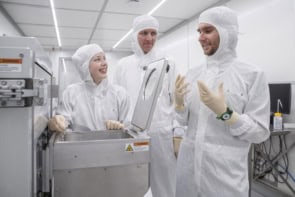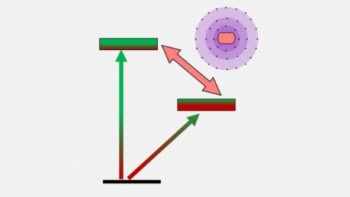Young researchers should have more space and time to follow up innovative ideas and unexpected results.
That was the conclusion drawn by John Enderby of Bristol University who gave a presentation on “Experimental physics in the UK: problems and promise” at the British Association‘s science festival in Leeds last month.
Many of the practical discoveries made in physics come from small-scale physics labs. For example, semiconductors, lasers and holography, X-ray diffraction and scanning tunnelling microscopy were all discovered by bench-top physicists, Enderby noted. “Physics is ultimately an experimental science. As such it relies on the skill of its practitioners and the infra-structure which supports them. Are we training and supporting our best young scientists in experimental physics or are we eating away at the capital provided by previous generations?” he asked.


